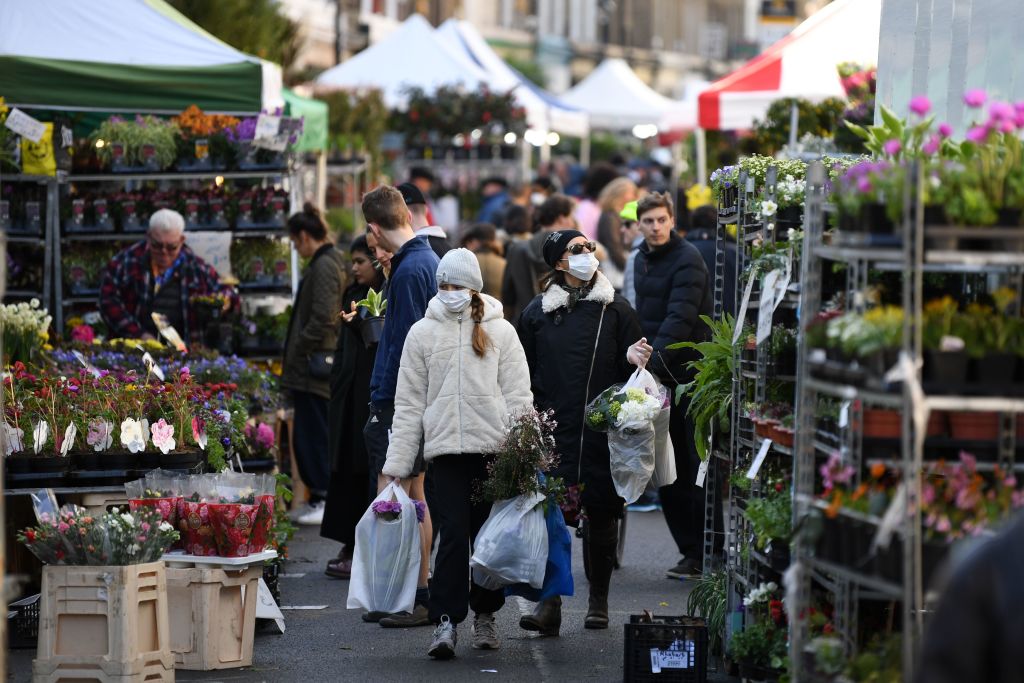This weekend has been dominated by photos of people having a jolly good time in groups at the park, or strolling along Columbia Road Flower Market as though nothing has changed. Sunday’s Downing Street press conference was therefore dominated by questions about whether the government would clamp down on this behaviour to stop coronavirus spreading still further. But while Boris Johnson urged people to stop ignoring social distancing rules, telling them that ‘even if you think you are personally invulnerable, there are plenty of people you can infect and whose lives will them be put at risk’, he only suggested that there could be ‘further measures if we think that is necessary’. So the government could enforce a lockdown, either on people ignoring social distancing rules or on outdoor access more widely, but it’s not going to yet.
At no point in the press conference was Johnson able to explain what he thought was going to change over the next few days that would render enforcement unnecessary. Does he think that people will alter their behaviour? If so, what will cause that change? People kept going to the pub despite him urging them not to, and only stopped when the government closed the pubs. Some people are still going to the pubs which have ignored these instructions and are waiting to see whether local authorities take action under licensing laws. Why will people suddenly become more compliant on outdoor group picnics?
Johnson’s own words on the matter can hardly be regarded as a gamechanger: there was no forceful emotion, no moral message
Johnson’s own words on the matter can hardly be regarded as a gamechanger: there was no forceful emotion, no moral message. Indeed, the Prime Minister appeared most passionate when talking about the importance of people getting outdoors, but failed to balance that with a similar tone on the importance of people staying away from each other. Contrast that with Nicola Sturgeon, who this afternoon told her own press conference: ‘Life shouldn’t feel normal right now, so if your life still feels entirely normal, ask yourself, are you doing the right things?’ She added that ‘the advice should not be seen as optional, it should be seen instead as a set of rules to be followed’.
There is currently no government information campaign warning people that they are dangerous if they come into contact with others, or indeed warning them of the danger to themselves of getting infected. People may well continue considering themselves ‘invulnerable’ because they are young and have no underlying health issues because the risk hasn’t been properly spelled out to them. Doctors report having to treat very sick young people in A&E – but do the currently apparently well young people drinking together in a park even know that this is the case?
It fell to the Deputy Chief Medical Officer, Dr Jenny Harries, to make the moral case for social distancing – and to explain that it’s not the outdoors that’s dangerous: it’s people. She said:
‘The real point here, as we keep discussing, but just to put the science behind it – the virus doesn’t last well outside, for all sorts of reasons: temperature, UV light and everything else. So actually an outdoor environment compared with an indoor one is generally a safer one, but the difficulty is if people are congregating outside or coming together. So a reasonably fit 70-year-old who has been cooped up because he is safely isolating in a home for a number of times, and wants to go out for fresh air, and does so at a distance of 2 metres from somebody else, will no doubt boost his mental health, and he’ll feel able then to tuck himself away for the next 23 and a half hours quite safely and reduce the total number of his social contacts.
‘So it is the principles underlying this which are really important, and I think it’s those ones that we should be trying to get out to the public and through that, encouraging people who are currently congregating: they are dangerous. They are making the outside environment unavailable to others who need it and it’s those individuals that we would ask not to congregate outside and to ensure that everybody can have just a little bit of safe space when they need it.’
It seems inevitable that the government will be forced to clamp down on access to outdoor spaces (many public parks have already announced they are closing) in one way or another. The question is not just why the Prime Minister isn’t advocating that already, but why he hasn’t made much of an effort to use the bully pulpit to stop it from being necessary.







Comments